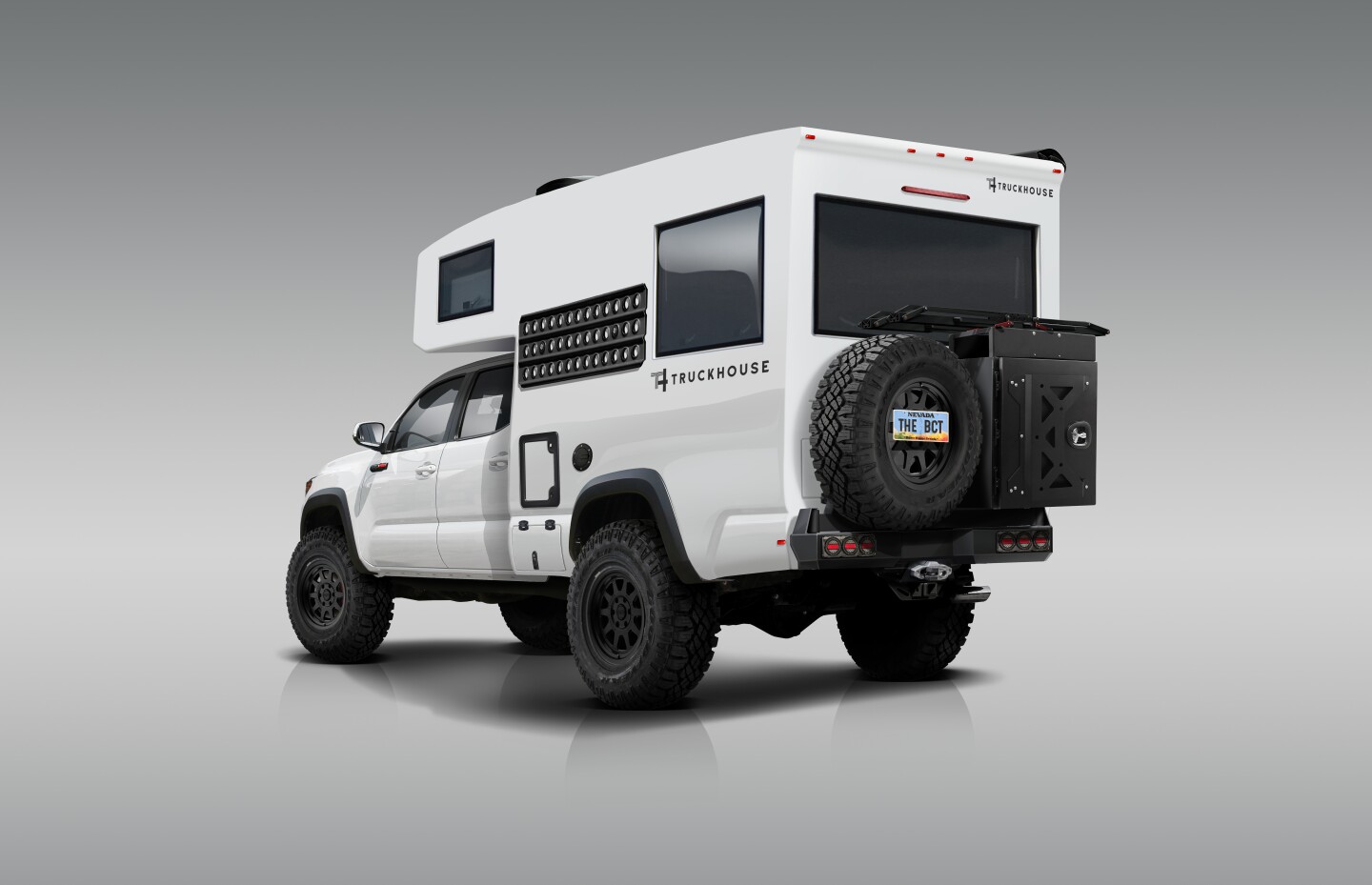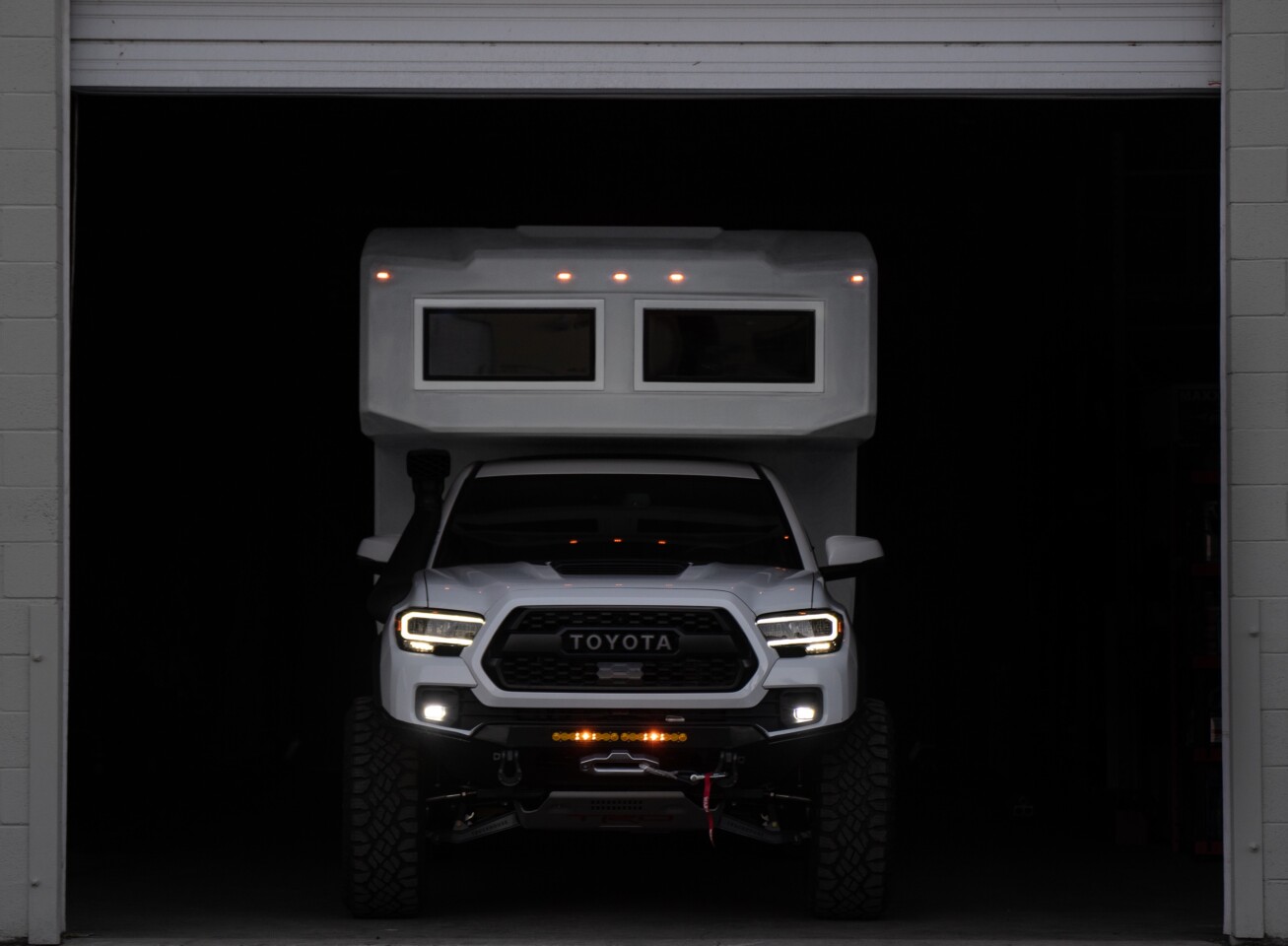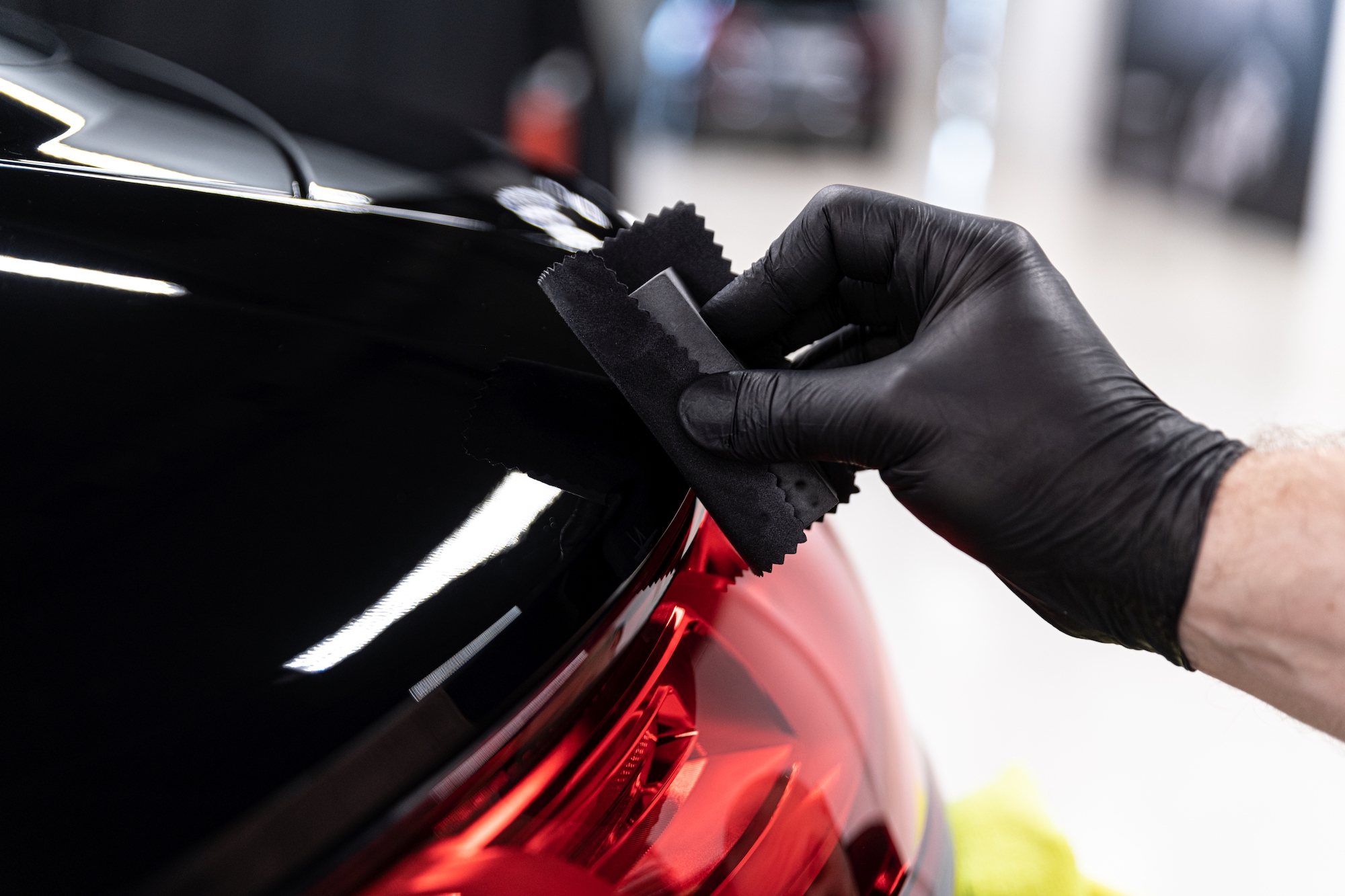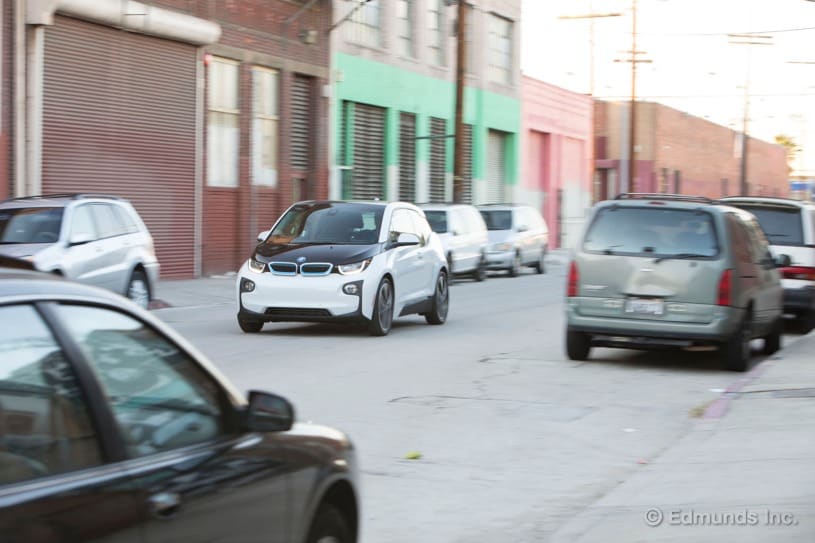Carbon-monocoque Toyota Tacoma 4×4 RV is a mini explorer yacht on land
Even with the launch of options like the Hiatus Camper, Toyota-based 4×4 mini-RVs have a way of leaving our American team members deep, deep green with envy. Most recently it was the EarthCruiser XTR. Why can’t we get something just like that in the United States? Well, there’s no American-market Land Cruiser 79 Series, but there is at least one rugged, go-anywhere Toyota pickup roaming the American West in packs. And Nevada-based startup TruckHouse turns the Toyota Tacoma into a compact beast of an all-terrain expedition vehicle, finding a middle ground between huge expedition trucks and 4×4 camper vans. Its BCT carbon fiber-reinforced Tacoma off-road camper rig explores the most distant stretches of Earthly land and drops down a comfortable base camp.
The Toyota Tacoma is one of the most popular vehicles in American overlanding, but its midsize payload means that Tacoma expedition camper options remain limited to mostly lighter, simpler designs. You can throw a roof-top tent over the pickup bed, drop in a pop-up camping topper or hunt down one of the complete pickup campers that’s light enough to ride in the Tacoma. Otherwise, you’re going to have to upsize to a full-size truck.
TruckHouse pursues a more complete Tacoma expedition rig using ultralight construction techniques borrowed from the aerospace and marine industries. It relies on a vacuum infusion process, which brings to mind the $1.5-million EarthRoamer XV-HD and XV-LTi, to create its chassis-mount carbon fiber-reinforced composite monocoque camper. It’s still fitting out the first prototype and doesn’t have a final weight figure to release yet, but it tells us the empty BCT shell weighs in at 500 lb (227 kg).
“We started by breaking down what the perfect overland camping experience was to us, and from there we built the most capable and livable vehicle we could imagine,” explains TruckHouse COO and cofounder Nicolo Monforte. “We selected the Toyota Tacoma for its modest size, maneuverability, and proven longevity. We then built a carbon fiber-reinforced composite house to match everything we love about the truck and its utility.”

TruckHouse
TruckHouse breaks the white monocoque monotony up with a 360-degree window set that includes a wide rear picture window, a pair of windows on the front wall of the above-cab alcove and an overhead skylight. The interior behind those windows remains a work in progress but will be a four-sleeper configuration with a pass-through to the truck cab. The 80 x 60-in (203 x 152-cm) residential queen-size bed is located in the alcove, while the wraparound sofa and dining table at the rear transform into a 73 x 43-in (185 x 109-cm) double. The layout also includes a wet bathroom and kitchen with stove, sink and refrigerator.
TruckHouse will ultimately allow buyers to select the model of Tacoma they’d like to base their camper rig on, but it chooses the range-topping TRD Pro for its first prototype. Independent of the front skid protection, Crawl Control and other off-road goodies Toyota throws in to make the TRD Pro top dog in the factory Tacoma world, TruckHouse adds in its own components, including a 12-in long-travel front suspension, fully fabricated rear axle, custom rear leaf spring suspension with Fox shocks, four-wheel disc braking, and available front and rear lockers.

TruckHouse
After TruckHouse gets through with it, the Tacoma TRD Pro is more ready than ever to travel freely off-grid, unimpeded by treacherous off-road obstacles that might trap or debilitate lesser and larger vehicles. The company ensures that the BCT living module can keep up with such off-grid ambitions, wiring up a Battle Born lithium battery bank with 500 amp-hours of usable power, fed by standard roof-mounted solar panels and the Tacoma alternator. The camper runs propane-free, and TruckHouse plans to offer increased base truck gasoline capacity optionally.
TruckHouse describes the cabin construction as four-season and severe-weather ready and includes floor heating to keep things comfortable when the frost, ice and snow start showing up outside all that window glass. The truck has 113.5 liters (30 gal) of fresh water and 76 liters (20 gal) of gray water storage.
TruckHouse’s build reminds us of an American EarthCruiser XTR or miniaturized EarthRoamer, but the company had a different inspiration in mind when it conceived it.
“We were inspired by the idea of bringing the beloved 1980s Sunrader 4×4 into the 21st century,” explains CEO and cofounder Matt Linder. “The BCT is built for those who desire a similar footprint of a van, the living space of a Class C RV, the capability of a purpose-built 4×4, and the fit, finish, and dependability of a high-end yacht.”

TruckHouse
Nothing that ends in “yacht” comes cheap, and the BCT isn’t looking to break the rule. TruckHouse is offering complete BCT trucks at an introductory base price of $285,000 and expects fully optioned trucks to run upwards of $380,000. It will offer BCTs on a made-to-order basis and plans to begin limited production in February. The opportunity to check the BCT out in public will come at Overland Expo Mountain West (Colorado) in August, barring more COVID-19-related interruptions.
Source: TruckHouse








